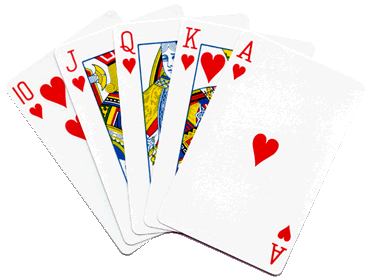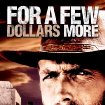Top Gun
Dollar days for a few top guns
"A Few $" opens with a long shot of a lone cowboy on the range. A shot rings out and he tumbles from his horse. After a bit there's another shot and the horse takes off running. Then the title appears: "Where life had no value, death, sometimes, had its price. That is why the bounty hunter killers appeared." This is the intro to two hunters after the same prey.
The most “Reverend.”
After the opening titles we get a closeup, or it would have been a closeup of a man's face except he has his nose in The Bible held up blocking the whole frame. The conductor announces they're passing Tucumcari, the town the “reverend” wants. The train doesn't stop there (“You're on the wrong train.”) He'll have to go on to Santa Fe, then double back through Amarillo getting off at Tucumcari. Instead he pulls the emergency STOP cord.
He's a bounty hunter after Guy Callaway who has a $1,000 price on his head. Such a dangerous hombre that the “reverend” is justified pulling the cord. The conductor defers to him obsequiously when he see's he's armed for bear, as a God-fearing man might do when someone points out to him it's in the Bible, what he thought oughtn't to be allowed. This movie seems to have a layer deeper than merely the hunt once it's introduced the Bible. However, the book's title reads “The Bible”, not the customary "Holy Bible", so the movie is tracking a hunter who goes by an authoritative book rather than by the Good Book per se.
The $1,00000 WANTED poster had a couple extra zeros
scrawled on the end. Guy thought he should be worth more. That's the
trouble with authoritative writing, somebody might have changed
what's written. Nothing new there. The saloon keeper won't admit to knowing
where Guy is, but he indicates with his eyes he's upstairs. Preachers won't
tell you everything, either, sometimes you have to look it up
yourselves. Our hunter slips the poster under the tart's door upstairs
to announce his arrival. No knock-knock conversation, he is a man of the
written word.
After he collects the bounty for Callaway, Colonel Douglas Mortimer (Lee
Van Cleef) sets his sights for Red “Baby” Cavanagh (José
Marco) in White Rocks, whose bounty is $2,000. Another bounty hunter,
“His name is Manco” (Clint Eastwood), is ahead of him.
Manco goes in for direct aural exchanges rather than the written word. He
gets the lay of the town from the street urchins. Someone tips him
where Red is playing cards. Whereas the gun slinger who goes by the
written word has to make sure it hasn't been modified, the one who goes by
aural tradition does well to confirm it with a sign. Manco plays Red a hand
of poker for “your life.” Whether Manco will take on Red's
three armed friends depends on whether he
can
beat Red's three-of-a-kind.
he
can
beat Red's three-of-a-kind.
The Colonel uses back issues of the “El Paso Tribune” to figure out who Manco is. Manco uses a semi-retired old prophet to learn about his opposite number. Instead of authoritative scripture warring with verbal tradition, they team up together to take on El Indio (Gian Maria Volonté) worth $10,000, with his gang of fourteen worth various amounts apiece. They all end up in a town called Agua Caliente, Spanish for Hot Water, and while Manco is busy with the gang, Col. Mortimer seeks to settle some old score with El Indio, but El Indio disarms the Col., and then it's time for him to face the music.
A fair fight
Col. Mortimer is out in the open, his gun on the ground away from him, and he's in El Indio's sights, but “the Indian” wants it to be a fair fight so he activates his musical pocket watch and tells him, “When the chimes end, pick up your gun. Go ahead and shoot me Colonel. Just try.” It's as it was on the train: by the time the Col. goes over and picks up his gun and brings it into play, El Indio will have killed again. Unfortunately, there's no emergency STOP cord hanging down from the sky. What's he going to do, pull on his watch chain?
As we're listening to the music chime down, the thought may occur, what was Col. Mortimer reading so intensely in the Bible on the train? All we could see was the cover, but when he set it down, a sideways exposure revealed it was open in the middle. The Bible book in the middle is Psalms, and it's a long book, more longer than any other book in it. Furthermore, this being in an opening scene, we may as well check the first Psalm to read, (Psalm 1:2–4)
But his delight is in the law of the LORD; and in his law doth he meditate day and night. And he shall be like a tree planted by the rivers of water, that bringeth forth his fruit in his season; his leaf also shall not wither; and whatsoever he doeth shall prosper. The ungodly are not so: but are like the chaff which the wind driveth away.
An intense reader is this bounty hunter, but the hombre blown away in the opening shot was just refuse on the ground, not to mention the regular load of bodies the hunters bring in. We're in the right book.
Okay then, which psalm would you want to be meditating on when you find yourself in hot water? My money is on Psalm 27: (Psalm 27:2–6a)
When the wicked, even mine enemies and my foes, came upon me to eat up my flesh, they stumbled and fell. Though an host should encamp against me, my heart shall not fear: though war should rise against me, in this will I be confident. One thing have I desired of the LORD, that will I seek after; that I may dwell in the house of the LORD all the days of my life, to behold the beauty of the LORD, and to enquire in his temple. For in the time of trouble he shall hide me in his pavilion: in the secret of his tabernacle shall he hide me; he shall set me up upon a rock. And now shall mine head be lifted up above mine enemies round about me.
That pretty much describes the Colonel's fearlessness facing overwhelming numbers. The sacred setting is defined by: the old church the gang holed up in, the crucifix on the wall of the home where El Indio stole his musical watch, and the sacred circle of stones in which the final gun battle takes place.
The best we could hope for Col. Mortimer is, (Psalm 27:14) “Wait on the LORD: be of good courage, and he shall strengthen thine heart: wait, I say, on the LORD.” His best bet is to wait for the Lord, … or at least for his partner.
Back stories
El Indio has recurring memories of a rape, but no explanation is given. However, we may assume he knew the woman, why else would it matter to him? Also, the woman wore a wedding band, but the guy El Indio caught her with didn't. She seems to be like the landlady who is married, “but she doesn't care!” The landlady in fact liked tall men, and for what it's worth the guy this woman was with was tall. Lest we judge her too harshly, it should be noted that a different woman appears in El Indio's memory every time he relives it. If he were married to the woman, and fooling around, then that would explain the different women pictured in his imagination, and why she didn't care to remain faithful.
El Indio and Col. Mortimer knew, or should have known, each other's names before they met. The Col. does a double (multi-) take when he reads El Indio's name on a wanted poster, and he announces himself by name at El Indio's door expecting him to recognize it. This becomes important to the plot when we realize it's not (just) money motivating this particular hunt. There's some history between the two.
Sensitivities
For the sensitive it should be noted there is a rape depicted in this film, and it's shown more than once. The Indian woman on the train is sitting dignified until it stops and she gets bumped. The Chinaman porter gets flummoxed by the conflicting demands of the two bounty hunters. Manco asks cynically about how he'd infiltrate Indio's gang, “Maybe bring him a bunch of roses,” implying it's an insult to a man's masculinity to be thought a pansy. The Colonel strikes a match on the hunchback's hunch and his insult is topped with one for smoking (“Well well, if it isn't the smoker.”) In the first saloon the men have the top jobs while the woman scrubs the floor. The women are prostitutes or adulteresses, the men are drunken reprobates, the children are hustlers, the sheriff is corrupt, the prophet is loco, and the Mexicans smell funny (“The air around here stinks just like the food.”) By comparison to those around them, the two professional killers seem like really nice guys.
I don't think “For a Few Dollars More” (1965) went out of its way to offend anybody, but it was made in the days before political correctness. If you find your sensibilities assaulted, I suggest you switch to your alternate selection, because this one is not going to improve as it goes along.
Production values
“For a Few Dollars More” (1965)—Italian “Per Qualche Dollaro In Più”—was directed by Sergio Leone. It was the second in his consumer Dollar Trilogy after “A Fist Full of Dollars” featuring Clint Eastwood as well, which itself was copied scene by scene from “Yojimbo.” Eastwood's character's name Manco is Spanish for one arm. He used only his left arm for smoking, dealing, fighting, etc. when in public and kept his right hand free to draw his gun. It was written by Sergio Leone, Fulvio Morsella, and others.
It stars Clint Eastwood, Lee Van Cleef, and Gian Maria Volonté. Eastwood was young in this movie and had yet to achieve top acting notoriety, so he and Van Cleef seem to share the lead, with the latter outshining him, he is so good. A lot of the Italian actors are dubbed but the dialog sounds natural. Ennio Morricone's score is really top notch and is tailored for the individual characters. The Spanish location settings seem realistically American west. The pacing is fine, and the railroad and telegraph forbode a looming modernity.
Review conclusion w/ consumer recommendation
I found “For a Few Dollars More” easy to watch and enjoy. It had humor, action, suspense, and intrigue as well as a shadow of a tragic romance. I especially liked it because the plot twists kept it interesting without making it confusing. I rank this one right up there in the top of spaghetti westerns. I recommend it to anyone except the thin-skinned.
Four out of five stars.
 Consumer Review
Consumer Review

